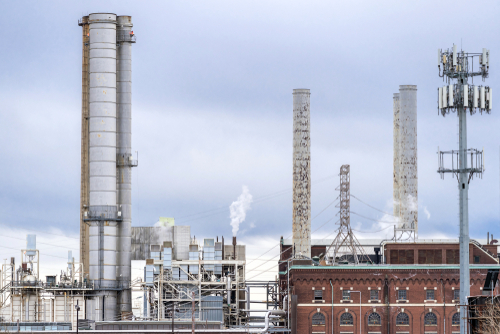
It will be back to work for Pennsylvania’s labor movement this week when stakeholder unions once again urge Gov. Tom Wolf to step back from his intention to enlist the state in the controversial Regional Greenhouse Gas Initiative (RGGI).
The state Environmental Quality Board will hold a series of online public hearings Dec. 8-14 to field comments on the wisdom of Wolf’s recent executive order that would make Pennsylvania the tenth state in the Northeast and Mid-Atlantic regions to commit to a strategy to make a serious dent in carbon emissions along the East Coast. The stated mission of RGGI is to take a stand against climate change. For labor, however, the yang to that noble ying could be the sacrifice of the kinds of solid union jobs in the energy industry that are increasingly hard to come by.
“A number of our unions are in that industry and will be submitting comments,” Rick Bloomingdale, president of the Pennsylvania AFL-CIO, told Pennsylvania Business Report.
Pennsylvania’s coal industry has already been rocked by the climate crisis as many utilities transition from fossil fuels to renewable energy. The disruption has now spread to natural gas, which threatens the entire model of robust power plants and also threatens the unions that operate and maintain those facilities.
Pennsylvania’s unions are helping to keep the debate over RGGI alive after a bruising November campaign that ended in a photo finish between presidential candidates and among the state candidates in tightly contested legislative races.
The final results include some painful losses for Democrats in the western reaches of the state, the splashiest being Republican Carrie DelRosso unseating House Democratic Caucus leader Frank Dermody, and State Sen. Pam Iovino (D-Mt. Lebanon) falling to Republican challenger Devlin Robinson. The race between State Sen. Jim Brewster (D-Allegheny) and Nicole Ziccarelli was still too close to call in early December and appeared headed to federal court over whether mail-in ballots that had not been signed properly should be counted.
Some political observers had pegged energy as a hot-button issue in western Pennsylvania due to the area’s role as a hub for the production of natural gas, coal and electric power. In particular, President-elect Joe Biden appeared to be walking a tightrope on the practice of hydraulic fracking. Although Biden said he would not ban fracking outright, natural gas has been increasingly vilified as a contributor to greenhouse gases and a potential target of RGGI.
Bloomingdale said the overall argument over fracking likely influenced voters more than the more-subtle debate over RGGI. “Fracking kind of became the proxy for all energy issues,” he said. “Nobody campaigned on RGGI because many people don’t have a clue what it is. It is an issue you can’t easily fit on a bumper sticker.”
The RGGI plan is a mandatory agreement to cap and reduce carbon dioxide (CO2) emissions from the power sector in the entire region rather than among individual states with the goal being to help each state reach its own decarbonization goals in the coming years. Joining RGGI would commit Pennsylvania to a hefty 25-percent chop in CO2 emissions between 2022 and 2030.
Some of the AFL-CIO’s member unions in Pennsylvania are highly dependent on fossil-fuel generation, and their members can make enviable paychecks not only running coal and gas-fired power plants, but also providing the big-ticket maintenance projects at these complex facilities. By comparison, renewable electricity requires far fewer employees and its wind turbines and solar arrays are often located well away from communities where the current power plants are located. The risk, according to the opposition, is that jumping on the RGGI bandwagon will cause power plants to shut down quickly and leave workers without jobs and towns without a formerly reliable source of local taxes.
“The bottom line is that there are numerous unanswered questions as to what joining RGGI would mean for electric ratepayers, lower-income households, businesses and industry – and even the environment,” Sen. Gene Yaw (R-Lycoming), chairman of the Senate Environmental Resources and Energy Committee, said in a recent statement on the upcoming Environmental Quality Board hearings.
Opponents of RGGI generally agree that while fossil-fuel power plants are challenged due to economics alone, they are not at the end of their serviceable life and RGGI could force premature retirements that will not only cost jobs and tax revenues but would force Pennsylvania to begin importing power from neighboring states that are not party to RGGI.
Bloomingdale said a slower transition to a green future would provide the commonwealth with more time to retrain workers and attract new businesses and jobs to the state. The Wolf administration, however, appears to be forging ahead on RGGI regardless of the potential for collateral damage.
“Our issues with RGGI are more around the process,” Bloomingdale said. “Governor Wolf has said there would be robust stakeholder participation. We did have one meeting with them, but it seemed like they had made their decision already.”
Labor is concerned particularly about RGGI’s provisions for a carbon tax that are supposed to generate revenues to re-train workers and attract new industry to communities that might once again experience the trauma felt in the 1970s when the mighty Pennsylvania steel industry fell apart and left traditional “company towns” out on a precarious limb.
“As we reduce emissions, the money from the tax goes down just as the need for more money is increasing,” Bloomingdale said. “And there is job training, but for what jobs? It takes time to attract new industry.”
Bloomingdale said RGGI won’t be labor’s only political priority in 2021. But persuading Wolf to back off on RGGI is still high on the agenda and is garnering bipartisan support as union leaders find a receptive audience on both sides of the aisle. “We have had some good conversations with both Democrats and Republicans on this matter,” he said. “We appreciate that people understand there is an impact from this and we still need to work on that.”